Public & Private Funding
Urban Forestry funding from state grants and other programs
State Grant Programs
 Affordable Housing and Sustainable Communities Program (AHSC)
Affordable Housing and Sustainable Communities Program (AHSC)
Administrated by: Strategic Growth Council (SGC)
Synopsis: The SGC is authorized to fund land-use, housing, transportation, and land preservation projects to support infill and compact development that reduce GHG emissions.
Connection to Urban Forestry: Urban Greening is a threshold requirement for all AHSC funded projects. Eligible urban greening projects include, but are not limited to, rainwater recycling, flow and filtration systems including rain gardens, stormwater planters and filters, vegetated swales, bioretention basins, infiltration trenches and integration with riparian buffers, shade trees, community gardens, parks and open space.
Eligible Applicants: Locality (e.g. local agencies), Developer (entity responsible for project construction), Program Operator (day-to-day operational project administrator).
 Cal-EPA Environmental Justice Action Grants
Cal-EPA Environmental Justice Action Grants
Administrated by: California Environmental Protection Agency (CalEPA)
Synopsis: The California Environmental Protection Agency (CalEPA) Environmental Justice (EJ) Action Grants is structured to provide grant funding to a wide variety of projects intended to lift the burden of pollution from those most vulnerable to its effects: supporting community-based organizations and residents to engage in emergency preparedness, protecting public health, improving environmental and climate decision-making, and coordinated enforcement efforts affecting their communities. In California, we know that some communities face disproportionate impacts from climate change, particularly low-income and rural communities, communities of color, and California Native American tribes.
Connection to Urban Forestry: Urban Forestry-related projects could fit many of the allowable funding priorities, including emergency preparedness, protecting public health, and improving environmental and climate decision-making.
Eligible Applicants: Federally recognized tribes; 501(c)(3) nonprofit organizations; and organizations receiving fiscal sponsorship from 501(c)(3) organizations.
Application Cycle Timelines: The California Environmental Protection Agency (CalEPA) announced the establishment of the new CalEPA EJ Action Grants Program in June 2023. Round 2 applications were announced in January of 2025 with a closing date of February 28, 2025.
 Cal-EPA Environmental Justice Small Grants
Cal-EPA Environmental Justice Small Grants
Administrated by: California Environmental Protection Agency (CalEPA)
Synopsis: The California Environmental Protection Agency (CalEPA) Environmental Justice (EJ) Small Grants are available to help eligible non-profit community groups/organizations and federally recognized Tribal governments address environmental justice issues in areas disproportionately affected by environmental pollution and hazards.
Connection to Urban Forestry: Cal-EPA has added another project category that is very relevant to our network: “Address Climate Change Impacts Through Community-Led Solutions.” Projects examples include energy efficiency, community greening, water conservation, & increased biking/walking.
Eligible Applicants: Non-profit entities or federally recognized Tribal governments.
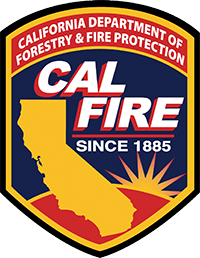 Urban and Community Forestry Program
Urban and Community Forestry Program
Administrated by: California Department of Forestry and Fire Protection (CAL FIRE)
Synopsis: Multiple grant programs supported by the Urban and Community Forestry Program will fund tree planting, tree inventories, workforce development, urban wood and biomass utilization, blighted urban lands improvements, and leading edge work that advances the goals and objectives of supporting healthy urban forests and reducing greenhouse gas emissions.
Connection to Urban Forestry: Urban forestry is the primary focus of this program.
Eligible Applicants: Cities, counties, non-profits, qualifying districts
 Active Transportation Program (ATP)
Active Transportation Program (ATP)
Administrated by: California Department of Transportation (CALTRANS)
Synopsis: The ATP provides funding to encourage increased use of active modes of transportation, such as biking and walking.
Connection to Urban Forestry: Trees and other vegetation are significant components of several eligible projects under the ATP, including parks, trails, and safe-routes-to-schools.
Eligible Applicants: Public agencies, transit agencies, school districts, tribal governments and non-profit organizations. Non-profits are eligible lead applicants for parks and recreational trails.
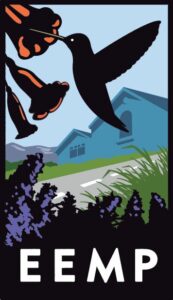 Environmental Enhancement and Mitigation Program (EEMP)
Environmental Enhancement and Mitigation Program (EEMP)
Administrated by: California Natural Resources Agency
Synopsis: The EEMP encourages projects that produce multiple benefits which reduce greenhouse gas emissions, increase water use efficiency, reduce risks from climate change impacts, and demonstrate collaboration with local, state and community entities. Eligible projects must be directly or indirectly related to the environmental impact of the modification of an existing transportation facility or construction of a new transportation facility.
Connection to Urban Forestry: One of two primary focal points of the EEMP
Eligible Applicants: Local, state, and federal governmental agencies, and nonprofit organizations
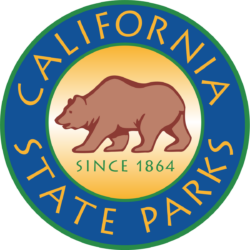 Outdoor Equity Grants Program
Outdoor Equity Grants Program
Administrated by: California Department of Parks and Recreation
Synopsis: The Outdoor Equity Grants Program (OEP) improves the health and wellness of Californians through new educational and recreational activities, service learning, career pathways, and leadership opportunities that strengthen a connection to the natural world. OEP’s intent is to increase the ability of residents in underserved communities to participate in outdoor experiences within their community, at state parks, and other public lands.
Connection to Urban Forestry: Activities can include teaching participants about the community’s environment (which can include the urban forest/community gardens etc.) and taking educational walks in the community to discover nature in action. Additionally, there is funding to support residents, including youth, to receive internships that can be used for future employment resumes or college admission for natural resources, environmental justice, or outdoor recreation professions.
Eligible Applicants:
- All Public Agencies (local, state, and federal government, school districts and educational agencies, joint powers authorities, open-space authorities, regional open-space districts, and other relevant public agencies)
- Non-profit organizations with 501(c)(3) status
 Statewide Park Program (SPP)
Statewide Park Program (SPP)
Administrated by: California Department of Parks and Recreation
Synopsis: The SPP funds the creation and development of parks and other outdoor recreational spaces in underserved communities throughout the state. Eligible projects must create a new park or expand or renovate an existing park in a critically underserved community.
Connection to Urban Forestry: Community gardens and orchards are eligible recreation features of the program and urban forestry may be a component of park creation, expansion, and renovation.
Eligible Applicants: Cities, counties, districts (including recreation and park districts and public utilities districts), joint powers authorities, and nonprofit organizations
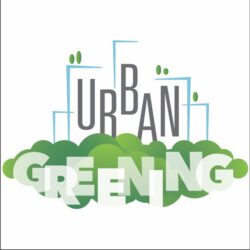 Urban Greening Grant Program
Urban Greening Grant Program
Administrated by: California Natural Resources Agency
Synopsis: Consistent with AB 32, the Urban Greening Program will fund projects that reduce greenhouse gases by sequestering carbon, decreasing energy consumption and reducing vehicles miles traveled, while also transforming the built environment into places that are more sustainable enjoyable, and effective in creating healthy and vibrant communities.
Connection to Urban Forestry: This new program explicitly includes urban heat island mitigation projects and energy conservation efforts related to shade tree planting. The existing draft guidelines favor tree planting as the primary quantification methodology to reduce greenhouse gases.
Eligible Applicants: Public agencies, nonprofit organizations, and qualifying districts
ICARP Grants Programs – Extreme Heat and Community Resilience Program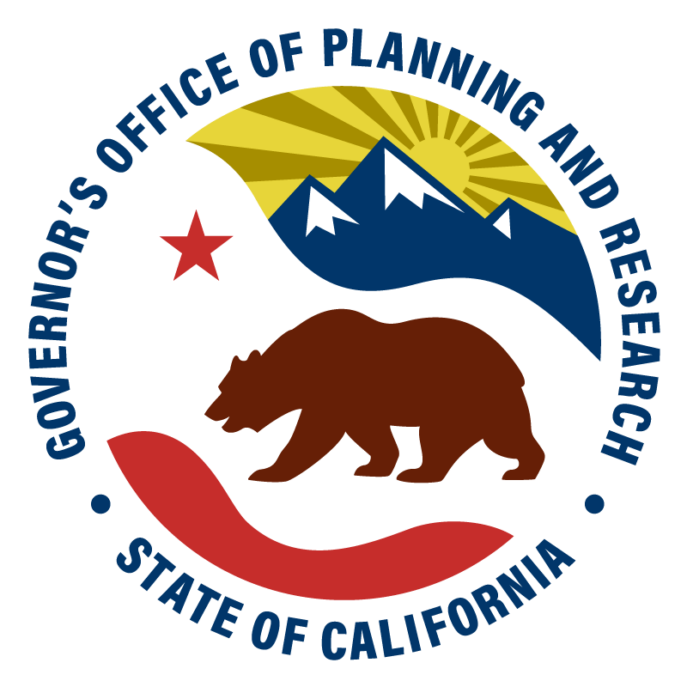
Administrated by: Governor’s Office of Planning and Research
Synopsis: This program funds and supports local, regional, and tribal efforts to reduce the impacts of extreme heat. The Extreme Heat and Community Resilience Program coordinates the state’s efforts to address extreme heat and the urban heat island effect.
Connection to Urban Forestry: This new program funds planning and implementation projects that keep communities safe from the impacts of extreme heat. Investments in natural shade is listed as one of the eligible types of activities.
Eligible Applicants: Eligible applicants include Local and Regional Public Entities; California Native American tribes, community-based organizations; and coalitions, collaboratives, or associations of nonprofit organizations that a 501(c)(3) non-profit or academic institution sponsors.
Other Funding Programs
Sustainable Cities Urban Greening Initiative
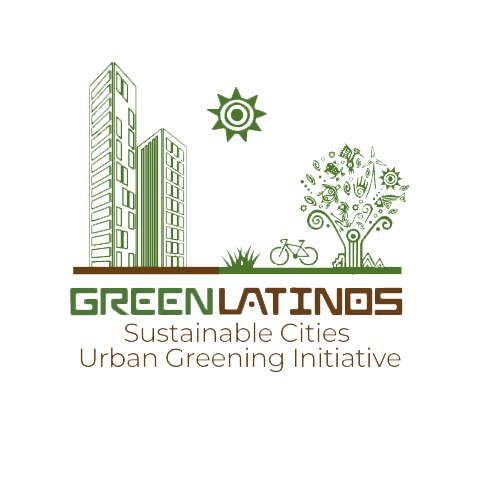 Greening America’s Cities (Bezos Earth Fund)
Greening America’s Cities (Bezos Earth Fund)
Administrated by: GreenLatinos / Bezos Earth Fund
Synopsis: GreenLatinos Sustainable Cities Urban Greening Initiative provides grants to revitalize greenspaces in urban Latino/a/e communities in select cities, including Los Angeles. This initiative is a program of the broader Greening American’s Cities Initiative that the Bezos Earth Fund funds. This grant program supports projects with developed plans that are ready for implementation. Project types may involve creating new urban greenspaces, expanding existing ones, or renovating current greenspaces. GreenLatinos invites Latino/a/e environmental, conservation, or climate justice organizations to apply. The Bezos Earth Fund awarded this funding to GreenLatinos through its Greening America’s Cities initiative which launched in July 2023 with a $400M commitment through 2030.
Connection to Urban Forestry: Urban greening projects can support urban forestry efforts.
Eligible Applicants: Entities that are eligible to apply are organizations with a 501(c)(3); fiscally sponsored by an organization with 501(c)(3) legal status; a fiscal sponsor with 501(c)(3) legal status applying on behalf of a project; or a federally recognized Indian tribe or organized under Section 17 of the Indian Reorganization Act of 1934.
GreenLatinos seek projects at a stage where plans are developed and the project is ready for implementation. Consideration will be given to the following eligible proposals:
CREATING a new urban green space, or
EXPANDING on an existing urban green space or
RENOVATING an existing urban green space
GreenLatinos prioritizes Latino/a/e environmental, conservation, or climate justice frontline organizations or programs primarily serving frontline Latino/a/e communities in the U.S. and its territories.
Application Due Date: Recurring grant funding is expected through 2030.
California Resilience Challenge Grant Program
Administrated by: The Bay Area Council Foundation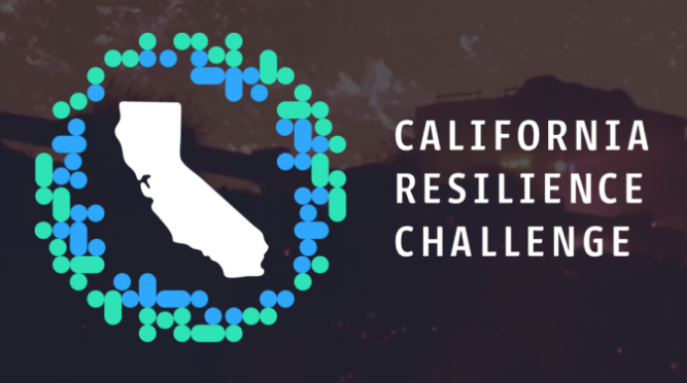
Synopsis: California Resilience Challenge (CRC) Grant Program is a statewide initiative to support innovative climate adaptation planning projects that strengthen local resilience to wildfire, drought, flood, and extreme heat events in under-resourced communities.
Connection to Urban Forestry: Eligible projects will consist of planning projects that are targeted at improving local or regional resilience to one or more of the following four climate challenges, and water and air quality impacts of the foregoing:
- Drought
- Flooding, including from sea level rise
- Extreme heat and increasing frequency of hot days (Urban Forestry related projects addressing extreme heat could be eligible)
- Wildfire
Eligible Applicants: California-based non-government organizations, including community-based organizations, representing under-resourced communities are encouraged to apply, as are local California public entities that represent under-resourced communities in partnership with a California-based non-government organization. CRC intends “under-resourced communities” to include and prioritize the following communities that are susceptible to the impacts of climate change and face large barriers to accessing public funds, while also adjusting for significant cost of-living variations throughout the state.
California Environmental Grassroots Fund
Administrated by: Rose Foundation for Communities and the Environment
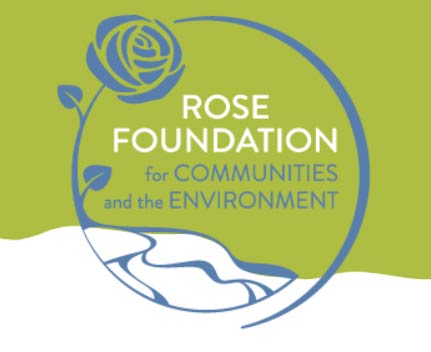 Synopsis:The California Environmental Grassroots Fund supports small and emerging local groups across California that are building climate resilience and advancing environmental justice. Grassroots Fund grantees tackle the toughest environmental problems facing their communities from toxic pollution, urban sprawl, sustainable agriculture, and climate advocacy, to the environmental degradation of our rivers and wild places and the health of our communities. They are rooted in the communities they serve and committed to building the environmental movement through broad outreach, engagement, and organizing.
Synopsis:The California Environmental Grassroots Fund supports small and emerging local groups across California that are building climate resilience and advancing environmental justice. Grassroots Fund grantees tackle the toughest environmental problems facing their communities from toxic pollution, urban sprawl, sustainable agriculture, and climate advocacy, to the environmental degradation of our rivers and wild places and the health of our communities. They are rooted in the communities they serve and committed to building the environmental movement through broad outreach, engagement, and organizing.
Connection to Urban Forestry: This program supports environmental health and justice and climate advocacy and resilience which may include urban forestry related work and environmental education.
Eligible Applicants: California nonprofit or community group with an annual income or expenses $150,000 or less (for exceptions, see application).
Community Foundations
Administrated by: Find a Community Foundation Near You
Synopsis: Community Foundations often have grants for local community groups.
Connection to Urban Forestry: Although not usually Urban Forestry focused, Community Foundations may have grant opportunities related to Urban Forestry – look for grants related to public health, climate change, flooding, energy conservation, or education.
Eligible Applicants: Community foundations usually fund local groups within their jurisdiction.
Arbor Day Foundation – Community Tree Proposal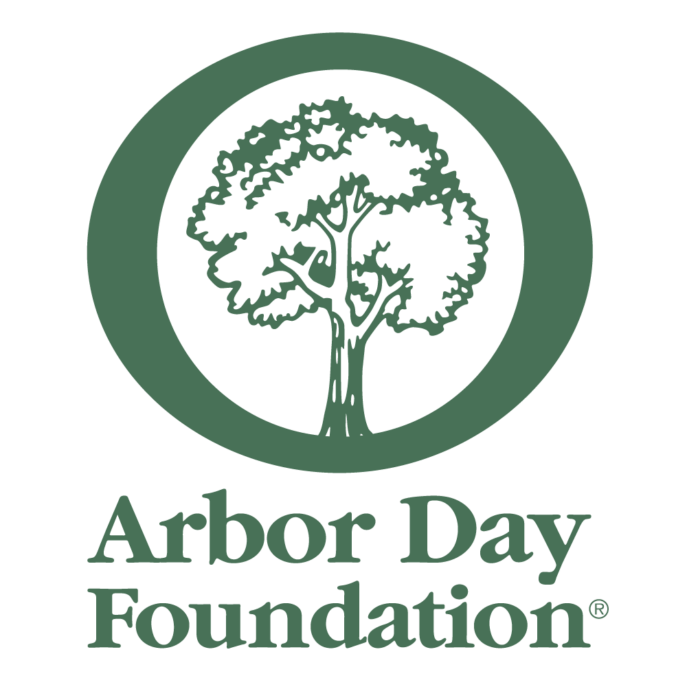
Administrated by: Arbor Day Foundation
Arbor Day Foundation accepts Community Tree Proposals to share with potential supporters. Using their proposal form, you can share project proposals for natural disaster recovery, environmental justice, youth education, community engagement, employee or corporate engagement, overall canopy growth, or other general tree needs. Please note that submitting a project proposal does not guarantee funding.
